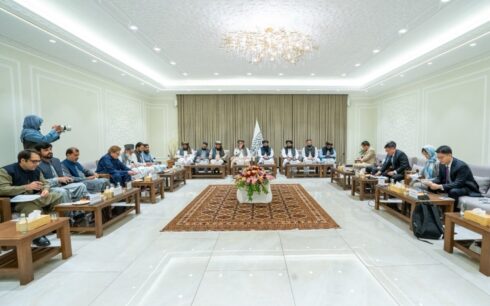KABUL, Afghanistan — Afghanistan on Sunday marked the 47th anniversary of the 1978 coup that overthrew the country’s first republican government, triggering decades of conflict, foreign intervention, and political instability.
On April 27, 1978, members of the Soviet-backed People’s Democratic Party of Afghanistan (PDPA) overthrew the government of President Mohammad Daoud Khan, the country’s first republican leader. Daoud Khan and 18 members of his family were executed inside the presidential palace in Kabul as tanks and helicopters loyal to the coup leaders stormed the grounds.
The event, known as the Saur Revolution, is widely seen as a turning point in Afghanistan’s modern history, triggering more than four decades of instability.
In a statement marking the anniversary, the Taliban government condemned the coup, saying it paved the way for the Soviet invasion of Afghanistan the following year. The Taliban also emphasized that they celebrate May 8, 1992, the day Soviet-backed forces withdrew and mujahideen fighters claimed victory, as a “historic day of freedom and pride” for the country.
After the April 1978 coup, Nur Muhammad Taraki, one of the PDPA’s leaders, assumed power, ushering in radical reforms that alienated many Afghans and sparked widespread unrest. In 1979, the Soviet Union invaded to bolster the communist government, leading to a decade-long war against U.S.-backed mujahideen fighters.
The conflict devastated Afghanistan, killing thousands of civilians and soldiers and forcing millions more to flee as refugees. Ultimately, Soviet troops withdrew in 1989, and by 1992, the last communist regime under Dr. Najibullah collapsed, leading to the rise of the mujahideen factions that would later plunge the country into civil war.
Speaking to local media, Sultan Mahmood Talai, a relative of Daoud Khan, reflected on the tragic day. “President Daoud, who was working to build Afghanistan with his modest means, was attacked and killed along with his family by communist forces trained by the Soviets,” he said.
The legacy of the Saur Revolution and the subsequent Soviet invasion continues to shape Afghanistan’s political and social landscape today, with successive governments grappling with the consequences of prolonged conflict and foreign interference.





